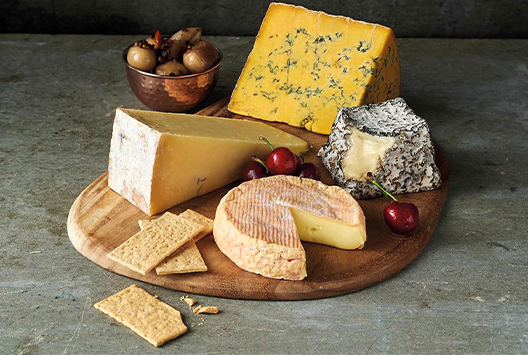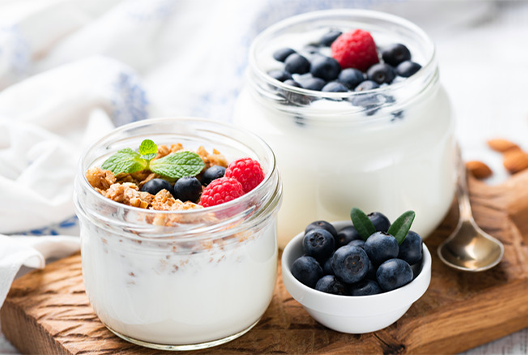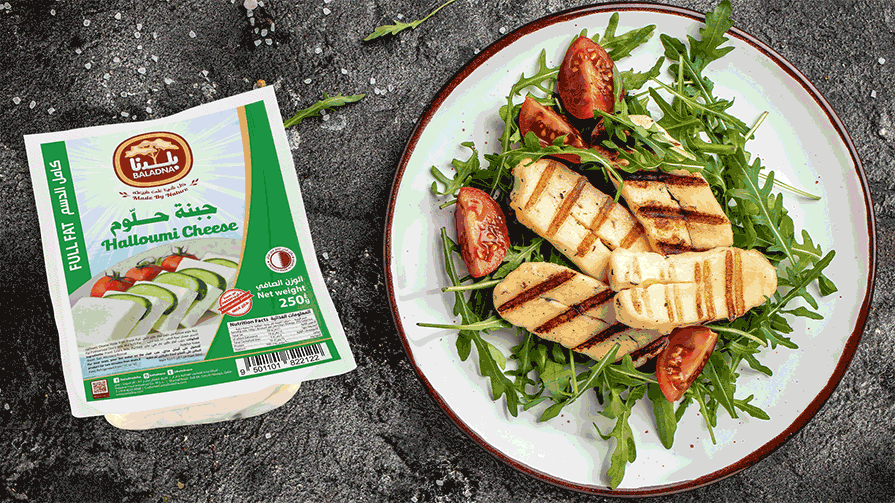
Decoding Cheese Colors: What The Hue Says About Flavor
Similar
Cheese is a staple food in many cultures around the world. It is a versatile ingredient that can be used in various dishes, from gooey pizza to creamy pasta. But did you know that the color of cheese can tell us a lot about its flavor, texture, and origin? In this article, we will explore the different colors of cheese and what they indicate.
The science of cheese color
The color of cheese is determined by various factors, including the breed of the cow, the animal's diet, and the processing method. The main component of cheese is milk, which contains a natural pigment called carotenoids. Carotenoids are responsible for giving cheese its yellow or orange color.
The level of carotenoids in milk can vary depending on the cow's diet. Cows that consume more grass produce milk with higher levels of carotenoids, resulting in a more yellow-colored cheese. On the other hand, cows that are fed a corn or soybeans diet produce milk with lower levels of carotenoids, resulting in a whiter cheese.
A look at white cheese
White cheese is often associated with milder, fresher flavors. It is typically made from cow's milk and has a mild, creamy texture. Examples of white cheese include feta, mozzarella, and ricotta.
Feta cheese is a Greek cheese made from sheep's milk or a combination of sheep's and goat's milk. It has a crumbly texture and a tangy, slightly salty flavor. Mozzarella cheese is an Italian cheese made from buffalo or cow's milk. It has a soft, creamy texture and a slightly sweet flavor. Ricotta cheese is an Italian cheese made from whey, a byproduct of cheese-making. It has a soft, creamy texture and a slightly sweet flavor.
A look at yellow cheese
Yellow cheese is known for having a stronger and more complex flavor. It is typically made from cow's milk and has a firmer texture. Examples of yellow cheese include cheddar, gouda, and Parmesan.
Cheddar cheese is an English cheese made from cow's milk. It has a sharp, tangy flavor and a firm, crumbly texture. Gouda cheese is a Dutch cheese made from cow's milk. It has a nutty, slightly sweet flavor and a firm, smooth texture. Parmesan cheese is an Italian cheese made from cow's milk. It has a salty, nutty flavor and a hard, granular texture.
A look at blue cheese
Blue cheese is a type of cheese that is characterized by the presence of blue or green veins. It is typically made from cow's, sheep's, or goat's milk and has a strong, pungent flavor. Examples of blue cheese include Roquefort, Gorgonzola, and Stilton.
Roquefort cheese is a French cheese made from sheep's milk. It has a sharp, tangy flavor and a creamy, crumbly texture. Gorgonzola cheese is an Italian cheese made from cow's milk. It has a sharp, tangy flavor and a creamy, crumbly texture. Stilton cheese is an English cheese made from cow's milk. It has a strong, tangy flavor and a creamy, crumbly texture.
Regional variations in cheese color
The color of cheese can also vary depending on the region where it is produced. For example, in France, cheese made from cow's milk tends to be more yellow than cheese made from goat's milk. In Italy, Parmesan cheese made from cow's milk is more yellow than Parmesan made from buffalo milk.
The world of cheese is one full of wonders
The color of cheese can tell us a lot about its flavor, texture, and origin. By understanding the color of cheese, we can make more informed choices about which cheeses to use in our cooking and which ones to enjoy.
Looking for healthy cheese options? Look no further than Baladna! Our 100% Qatari farm provides authentic, fresh, and quality dairy products that are sure to satisfy your taste buds. Try our range of cheeses today and experience the delicious and healthy goodness of Baladna.



